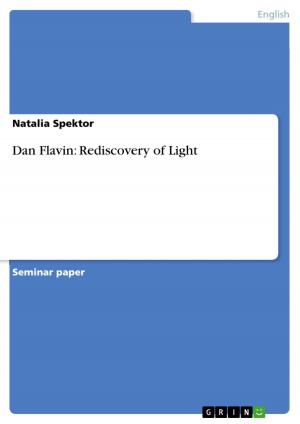Migration in Germany - Violent crimes committed by young men of foreign orignis
Violent crimes committed by young men of foreign orignis
Business & Finance| Author: | Sandro Sterneberg | ISBN: | 9783640453788 |
| Publisher: | GRIN Publishing | Publication: | October 22, 2009 |
| Imprint: | GRIN Publishing | Language: | English |
| Author: | Sandro Sterneberg |
| ISBN: | 9783640453788 |
| Publisher: | GRIN Publishing |
| Publication: | October 22, 2009 |
| Imprint: | GRIN Publishing |
| Language: | English |
Essay from the year 2008 in the subject Business economics - Miscellaneous, grade: 1,3, Berlin School of Economics (Fachbereich 1), course: Political Economy and Social Structures of Modern Societies, language: English, abstract: In the 1960s the Federal Republic of Germany signed contracts with Turkey and other countries to send workers, mostly from rural areas, to support the booming industrial economy (The German Economic Miracle). [...] Nowadays Germany is a country of immigration which faces the challenges but also chances of a multicultural society. Unfortunately many foreign families are dependent on public transfer payments and therefore live in poor social and economical situations. People who are living under difficult conditions with no prospect for a positive change are likely to become criminals. Especially male teenagers and young men with migrant backgrounds (between 14-25 years) are in larger German cities more likely to be intensive culprits and commit crime.Therefore juvenile delinquency is an important issue for Germany which has been discussed in the public dispute for many years. The scandal about the 'Rütli-Hauptschule' in Berlin (2006), where tutors refused to give lessons because they felt threatened by pupils, was probably just the tip of the iceberg but led together with other scandals again to a debate to find solutions for this problem. During the election campaign in the Bundesland (Federal State) Hessen Roland Koch, politician of the German Christian Democratic Party, named a resolution. He proposed that young criminals, so particularly young males with migrant backgrounds, should be more severe punished. Although it perhaps was a statement to catch votes during the election campaign even so it could be a solution for the problem. But is this the only and above all the best solution? The author of this essay has been following the discussion and was beside a solution interested in having a look behind the various reasons for their bearing to get committed to crimes. For that Berlin, the capital of Germany, was a very good example because it is one of the most cultural diverse cities in Germany and has got a high crime rate among young males with foreign origins. In addition the 'Landes-kommission Berlin gegen Gewalt' assigned between 2005 and 2007 a task force consisting of scientists, members of the police, public services and representatives of migrant organizations to examine the issue in detail as well as to work out recommendations for a possible solution. The aim of this essay is to state reasons for their behavior and to compare the suggestion by Roland Koch with the suggestions of the task force for an improvement in the situation.
Essay from the year 2008 in the subject Business economics - Miscellaneous, grade: 1,3, Berlin School of Economics (Fachbereich 1), course: Political Economy and Social Structures of Modern Societies, language: English, abstract: In the 1960s the Federal Republic of Germany signed contracts with Turkey and other countries to send workers, mostly from rural areas, to support the booming industrial economy (The German Economic Miracle). [...] Nowadays Germany is a country of immigration which faces the challenges but also chances of a multicultural society. Unfortunately many foreign families are dependent on public transfer payments and therefore live in poor social and economical situations. People who are living under difficult conditions with no prospect for a positive change are likely to become criminals. Especially male teenagers and young men with migrant backgrounds (between 14-25 years) are in larger German cities more likely to be intensive culprits and commit crime.Therefore juvenile delinquency is an important issue for Germany which has been discussed in the public dispute for many years. The scandal about the 'Rütli-Hauptschule' in Berlin (2006), where tutors refused to give lessons because they felt threatened by pupils, was probably just the tip of the iceberg but led together with other scandals again to a debate to find solutions for this problem. During the election campaign in the Bundesland (Federal State) Hessen Roland Koch, politician of the German Christian Democratic Party, named a resolution. He proposed that young criminals, so particularly young males with migrant backgrounds, should be more severe punished. Although it perhaps was a statement to catch votes during the election campaign even so it could be a solution for the problem. But is this the only and above all the best solution? The author of this essay has been following the discussion and was beside a solution interested in having a look behind the various reasons for their bearing to get committed to crimes. For that Berlin, the capital of Germany, was a very good example because it is one of the most cultural diverse cities in Germany and has got a high crime rate among young males with foreign origins. In addition the 'Landes-kommission Berlin gegen Gewalt' assigned between 2005 and 2007 a task force consisting of scientists, members of the police, public services and representatives of migrant organizations to examine the issue in detail as well as to work out recommendations for a possible solution. The aim of this essay is to state reasons for their behavior and to compare the suggestion by Roland Koch with the suggestions of the task force for an improvement in the situation.















